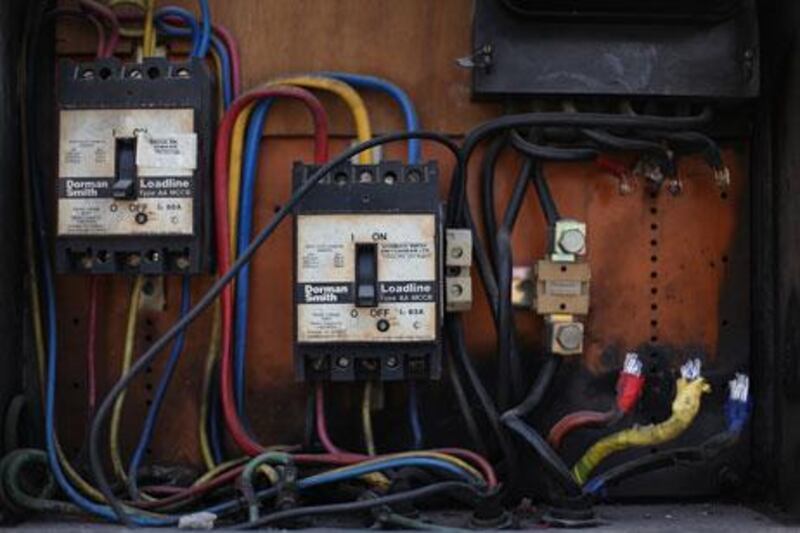ABU DHABI // More than 60 per cent of imported electrical cables used to build apartments and villas are a fire hazard.
Faulty and substandard wires are the single biggest cause of fire in buildings, according to Esma, the Emirates Authority for Standardisation and Metrology.
The federal government authority plans to introduce fines from 2013 for anyone found handling such cables - whether importers and distributors or the contractors who install them.
Unscrupulous distributors order low-cost, poor quality cables from manufacturers in China, India and Europe to keep costs low - but make large profits by selling them on at an inflated price.
Mohammed Saleh Badri, the acting director general of Esma, said the cables were made of substandard materials such as aluminium and steel instead of copper, and so were likely to overheat, causing short-circuits and fires.
Despite the risks there is no law against their use. As well as fines, the authority plans tests aimed at weeding out substandard wires.
"At present there are no fines for the installation of faulty cables," said Mr Badri. "However, our technical regulation would cover this and in future there would be fines."
As part of the regulations, all cables, whether locally manufactured or imported, will face rigorous tests. Only those that pass will be allowed on the market, and will bear the Emirates Conformity Assessment Scheme (Ecas) conformity mark.
Mr Badri said consumers could then protect themselves by ensuring they purchased only those cables that bore the mark.
"At the moment Esma does not have any building codes for the usage of low voltage cables. However it is in our plan for the year 2013 to bring out a regulation on cables and implement it," he said.
According to Ducab, the electrical wire manufacturing company Dubai Cable, jointly owned by the governments of Abu Dhabi and Dubai, more than half of imported wires pose a fire risk.
"Some 60 per cent of all flexible cords imported into the UAE are substandard and of inferior quality," said Colin McKay, general manager of sales and marketing at Ducab.
"Substandard cables are a major contributing factor to fires in the buildings, not only in the UAE but other countries in the region too," he added.
He said the cables were popular among profiteering distributors.
"Originally they started reducing the copper content to counteract high copper prices; when they couldn't make enough profits from that route, they switched to aluminium with copper cladding. Now they have moved to steel with copper cladding."
He said that despite using cheaper materials, the distributors would then sell on the unsafe cables at prices only 10 per cent cheaper than their standard counterparts, ensuring huge profit margins.
Mr McKay called for strict punishments for middlemen who import and sell substandard wires. "We are working with authorities to get the culprits prosecuted. If you can be put in prison for bouncing a cheque, you should be put in prison for putting people's lives in risk."






